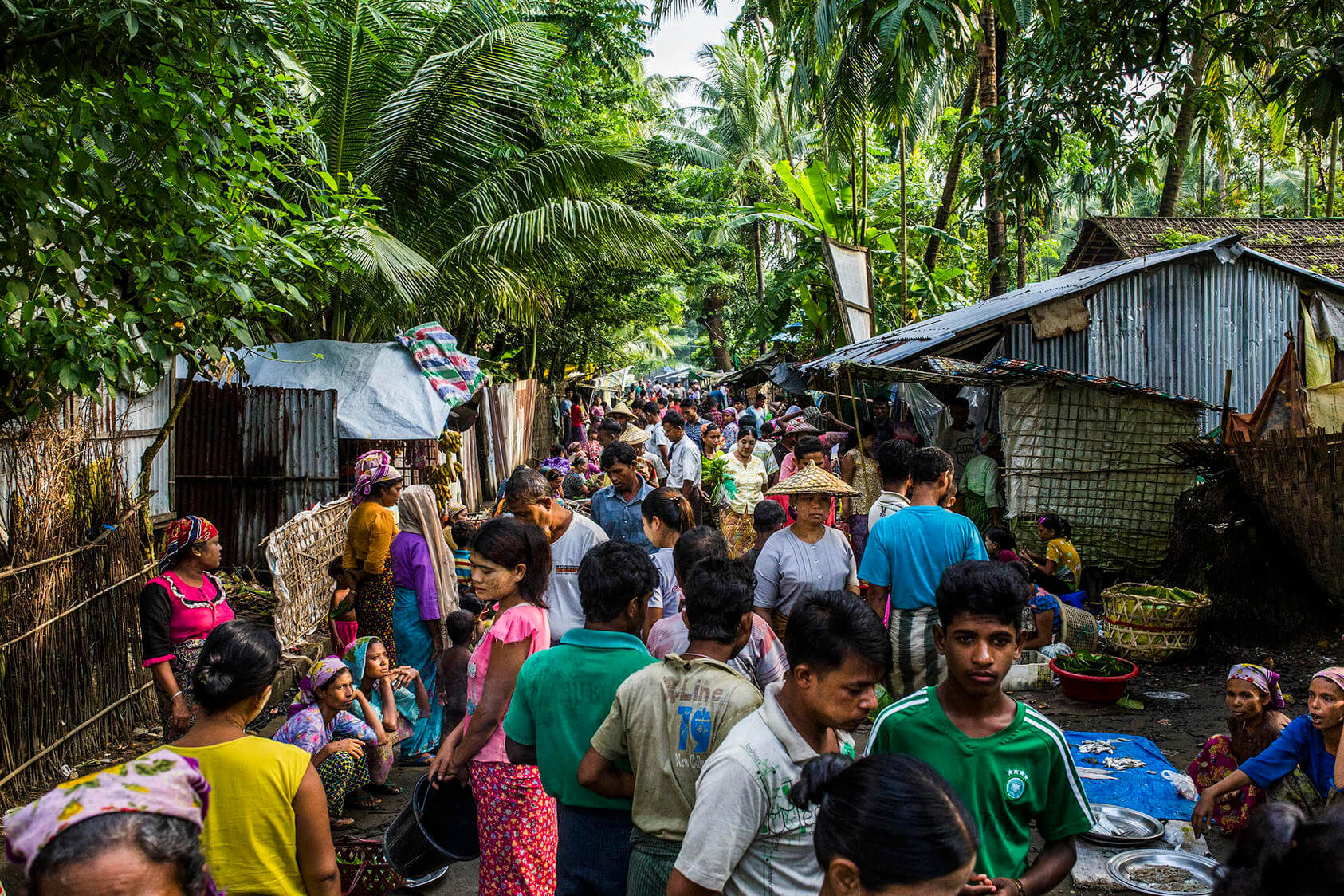Myanmar’s southern state of Arakan, home to thousands of Rohingya Muslims, has raised concern about India’s failure to honour its development obligations.
India has pledged $25 million in financial assistance over a period of five years, disbursing $5 million per year. It has already helped its neighbour build 250 homes in 2022 under the first year of the agreement. In addition, the state-run newspaper Myanmar Alinn has reported that existing projects are being implemented in an “orderly manner” and 13 additional projects for the second year have also been approved. The two sides are also in discussions over 17 more projects in the third year, with Indian embassy officials having met with officials from the Ministry of Social Welfare, Relief, and Resettlement, including Minister Dr. Thet Thet Khaing.
Despite these discussions, however, Arakan State’s minister for Commerce, U San Shwe Maung, has said, “The Indian government pledged to support the development of Arakan State at the rate of $5 million per year for five years. But in the first and second years of the project, the Indian government provided only US$3 million,” Arakan State’s minister for Commerce, U San Shwe Maung said.
“There are business reports and business-related complaints,” he added.
Press Release on Foreign Secretary’s visit to Myanmar from November 20-21: https://t.co/ab9xN4UtiF pic.twitter.com/aSf8hYRZzy
— Arindam Bagchi (@MEAIndia) November 22, 2022
India, however, appears to have suggested that it has concerns about how the funds are being used.
Jitendra Rawat, the first secretary of the Indian Embassy, said during a meeting on Friday that India expects transparency regarding the use of project funds in accordance with the rules, as it is providing the funds.
He added that he would like to include “efficiency-enhancing projects,” and that once Myanmar provides details about the proposed activities, he will “immediately send the information” to New Delhi.
“According to the five-year plan, if the needs of Arakan State are presented, the most beneficial and most needed of the people can be coordinated with the Ministry of Social Welfare, Relief and Resettlement and the Indian Embassy,” he was quoted saying by the newspaper.
This minor tiff follows Indian Foreign Secretary Vinay Mohan Kwatra’s visit to Myanmar last Friday, during which he also met with the senior leadership, including military chief Min Aung Hlaing and Foreign Minister Wunna Maung Lwin, to review their bilateral development cooperation projects.
Kwatra reaffirmed the Modi government’s commitment to continue working on projects under Rakhine State Development Programme and Border Area Development Programme “for the benefit of the people of Myanmar.”
FS Kwatra was welcomed by Lt-Gen Yar Pyae. Myanmar readout: pic.twitter.com/ZidaD1NIBd
— Sidhant Sibal (@sidhant) November 22, 2022
According to a press release by India’s Ministry of External Affairs (MEA), he discussed the “maintenance of security and stability” in their shared border region. In particular, he raised the issue of human trafficking by international crime syndicates in Myanmar’s Myawaddy region, in which many Indian nationals have been apprehended. It has been reported that many Indian citizens have been taken hostage after falling victim to fake job offers.
The diplomat also expressed New Delhi’s “continued support to people-centric socio-economic developmental projects,” including those along their border areas.
Furthermore, he reiterated India’s commitment towards the accelerated “implementation of ongoing connectivity initiatives” such as the Kaladan Multimodal Transit Transport Project and the Trilateral Highway.
MEA spokesperson Arindam Bagchi tweeted on Monday tweeted that Kwatra had also discussed “India’s support [for] democratic transition in Myanmar.”
Meanwhile, a press release by the Burmese Ministry of Information said the neighbours had discussed developing deeper ties in trade and investment, with a focus on multi-sector cooperation and development projects. They also touched on the need for greater cooperation in international forums such as the United Nations and the Shanghai Cooperation Organization.
In last 48 hours, India has discussed trading in local currencies with UAE (Rupee-Dirhams) & Myanmar (Rupee-Kyat)
— Sidhant Sibal (@sidhant) November 23, 2022
Burmese media house The Irrawady noted that New Delhi’s press release this year was “significantly shorter” than the one it released last year following former foreign secretary, Harsh Vardhan Shringla’s meeting with Min Aung Hlaing in December 2021. The media outlet argued that this reflects “India’s narrowing approach towards post-coup Myanmar.”
It noted that last year, Shringla had “raised India’s interest in seeing a democratic Myanmar, the release of political prisoners, cessation of violence, support for the ASEAN peace process and provision of humanitarian aid to the people.”
However, “none of this was mentioned in the recent press release,” the paper said, concluding that the “omissions are revealing.”
Despite the newspaper’s claims, however, India has maintained a largely friendly relationship with the junta since the coup last February. While it has expressed “deep concern” about the human rights situation in the country, it has not exerted any pressure on the regime.
One month after the internationally condemned coup last February, India was among only eight countries to send a representative to attend the Myanmar Armed Forces Day military parade in Naypyitaw. Likewise, in June, India abstained from voting on a United Nations General Assembly resolution on Myanmar, arguing that its views were not been reflected in the draft.
In addition, in March this year, Indian Prime Minister Narendra Modi ignored pressure by the United States to bar the junta from participating at this year’s Bay of Bengal Initiative for Multi-Sectoral Technical and Economic Cooperation (BIMSTEC) summit.
Furthermore, it even increased its aid allocation for Myanmar in the 2022-23 budget from Rs. 400 crores ($51.23 million) to Rs. 600 crores ($76.85 million).
Much of this continued support is due to the fact that the two countries share a 1,624-kilometre-long land border and a 725-kilometre maritime boundary in the Bay of Bengal. Therefore, maintaining a healthy relationship with whoever is in charge in Myanmar is essential to preventing militant groups from crossing over into Indian territory.

